Air travelers have had some amazing opportunities in the last couple of weeks to snag fantastic flights at low prices. While some sales are announced, others are not. Pricing mistakes also occur and there are different rules that govern them over sales. So is it a mistake or is it a sale? How can I tell and why does it matter?
If you are considering booking travel or signing up for a new credit card please click here. Both support LiveAndLetsFly.com.
If you haven’t followed us on Facebook or Instagram, add us today.
Exceptional Fare Sales From Discounters
Discount carriers like WOW! Air and Norwegian Air Shuttle routinely offer sales starting at unimaginably low prices. Just last week WOW! offered fares from $69 to Europe even from west coast departures like San Francisco to Paris or London. Later the same week Norwegian offered fares in a similar fashion from $89 each-way, or $49 each-way from the northeast US to the deep Caribbean.
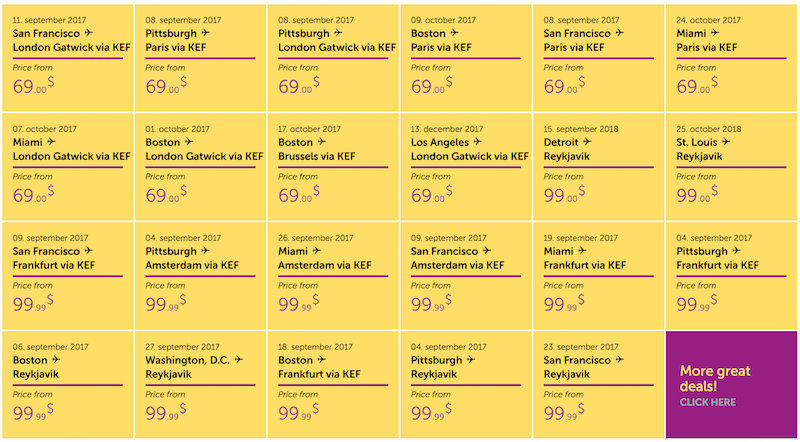
RyanAir in Europe paved the way on crazy cheap base fares and making money by filling the planes full and charging for everything else. The Irish discount carrier hasoffered flights for £.01 or €.01 depending on the point of departure (plus taxes and fees). European and British marketing oversight has ended the nearly free flights advertising by threatening lawsuits. Unfortunately, the carrier didn’t offer a way to pay just 1 cent without any other fees so the advertisements were illegal (£5 online checkin or £10 counter checkin meant the minimum fare would have been at least £5.01). The ads have since changed to an achievable amount of €9.99 each-way or £9.99 in the UK.

But it’s not just European carriers running crazy low base fares. Frontier and Jet Blue frequently offer fares from as little as $20 each-way. Spirit even has a $9 Fare Club where paid membership will give members access to flights starting from as little as $9.
Traditional Carriers Price Match
It would be easy to tell if an inexpensive fare, even an unbelievably low fare if it was only ever offered by low-cost carriers and never matched by the majors. But that hasn’t been the base. Flights to and from Scandinavia (Copenhagen, Stockholm, etc.) have been on sale for three years essentially. The larger traditional carriers have been fighting Norwegian Air Shuttle at every turn.
Fares to and from Copenhagen and Stockholm specifically (though others exist as well) can be had from the east or west coasts for between $300-400. While outright matches to Norwegian dollar-for-dollar sometimes exist, more often than not the traditional carriers are higher in the base fare but cheaper than Norwegian in total fare when adding included baggage into the price.
British Airways parent company, IAG, who also own Spanish flag carrier Iberia, Irish flag carrier Aer Lingus, and Vueling (Spanish discounter) have recently added their own Ultra Low Cost Carrier (ULCC) – Barcelona-based Level Airways. This airline recently launched offering roundtrips from Los Angeles to Barcelona from $298, tens of dollars more expensive than the very best fares from WOW! and Norwegian.
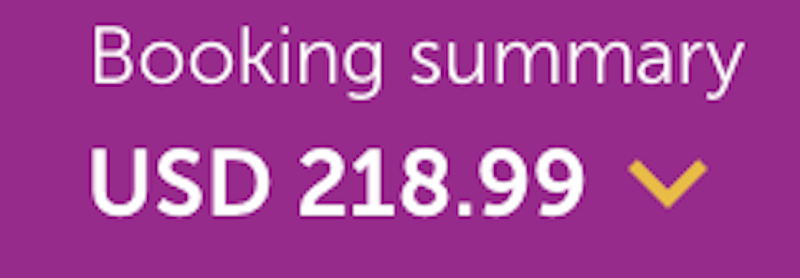
TAP is a Star Alliance member and international flag carrier from Portugal. They have frequently offered fares from eastern cities to Lisbon for under $200 in coach each-way and $400 in business. Emirates has offered 2-for-1 roundtrips from NYC to Milan for $799 in coach. British Airways continues to compete for the premium market with roundtrips from the $900s-1500 to/from east coast destinations. These fares compete with all-business class LaCompagnie for Paris-New York and London-New York flights where angled flat has been on sale for $999 roundtrip (currently they offer $1,000 for kid’s traveling with a parent paying $1,300).
Good Old-fashioned Fare Wars
Further muddying the waters are good old-fashioned fare wars and hub attacks. American might try to fill their airplanes with Delta customers by attacking their hubs with lower than normal fares. This is to try to lure those customers away from Delta in Minneapolis, Atlanta, and Detroit for example while Delta might respond with similarly priced fares to Dallas, Phoenix and Charlotte. Intermittent fare wars have been waged for decades so there is nothing new here, but it’s worth noting that for a variety of reasons United, American and Delta may offer genuine, intentional and unusually low prices.
Was It A Mistake or a Sale
Whether an alert comes across my phone from DealRay, Flyertalk or just a fellow traveler it can be impossible to know if this is just a great sale or a genuine error. Here are some ways to identify a mistake fare:
- Obscure process – Securing the fare at the price listed requires booking on a specific site or other manipulation of the booking site. Recent fare sales have included booking through lesser known site like Wideroe or altering the country designation of the website.
- Must be booked in a foreign currency. This is usually the result of a miscalculation in the exchange rate, or a currency that has recently changed valuation.
- Transposition – Sometimes a price that should be entered in dollars (say a base of $4000) is entered in the corresponding currency’s location (a base fare of 4000 Thai Baht or about $130). Taxes which may be calculated separately can obscure the total price from being directly inverted.
- Peculiar routing – There are often very specific routes to force broken pricing on an itinerary. One that comes to mind was this deal we flew in November of 2014.In fact, Shailene Woodley was on that flight in premium economy. We didn’t say hi.
- “Fat Finger Discount” – Someone forgot a zero or two, now a base fare that should read $2000 is just $200 and that first class flight to Hawaii is cheaper than coach.
- Remarkably cheaper than fair market rates. If there is general competition within tens of dollars of the fare for the other airlines and this particular offer is a fraction of those prices, it is likely an error.
- Fares return to dramatically higher prices. We recently booked our family of three to Europe for $550 all-in, one day later prices had climbed to nearly that price per person.
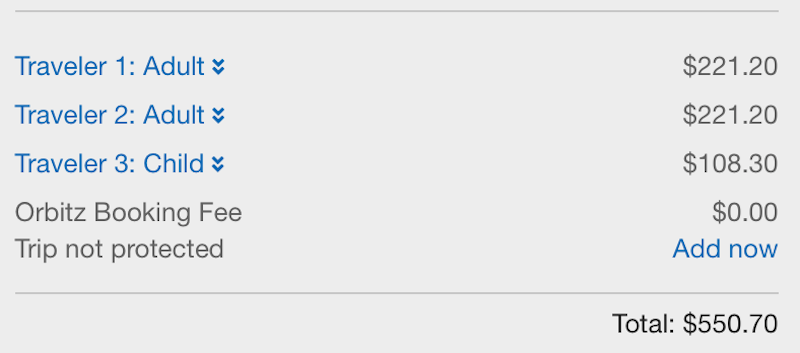
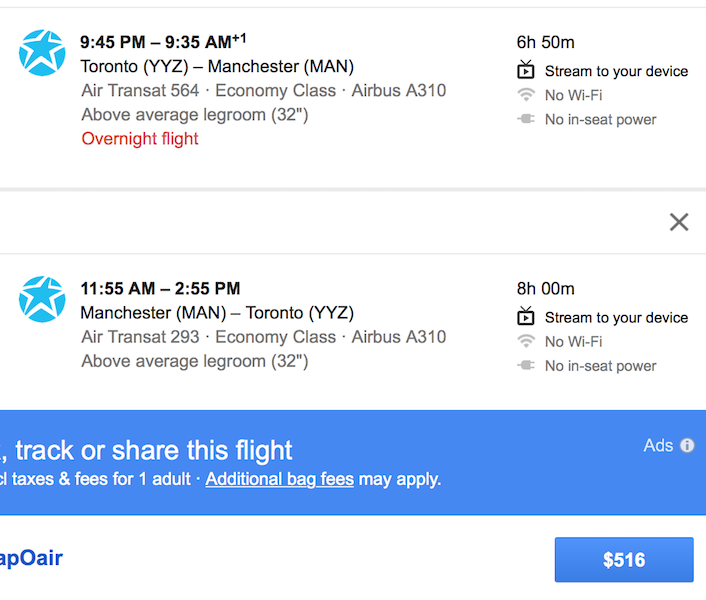
Who Decides? And Why Does it Matter?
Different rules govern mistakes versus fare sales in the US; knowing whether you have booked a genuinely priced airfare or a mistake will have a dramatic effect on your travel plans. Fare sales are treated as any other sale and will be subject to the same consumer protection you may otherwise enjoy for retail purchases of any kind.
In the case of mistake fares in the US, different rules apply. In January of 2012, the US DoT (Department of Transportation) passed a rule, CFR 399.88 that prohibited carriers from increasing the cost of a fare after the purchase was completed – even in the case of a mistake! The language around mistake fares was written into the rule itself which makes it as clear as possible, if an airline makes a mistake, sorry Charlie, that’s a risk for those in the airline business.
But then a particular fare mistake came along and ruined it. Or the bloggers did (read any of the comments on the blogs announcing the death of the deal – there’s no question apparently). Or the people booking them did. Or the lobbyists for the airline did.
In this specific instance (the United Denmark mistake fares where first class could be secured for $51 all-in) the decision by the DoT to not honor the deal was logical. Their position was that bad actors and not genuinely confused consumers had taken advantage of the deal. Those bad actors (including myself) purportedly booked 15,000+ tickets in the 12 hours the deal was alive. However, this doesn’t seem very different from a mis-priced good at a store. If a sports retailer prices all baseball equipment at $9.99 and some consumers realize that they have stumbled on to a very good deal and take advantage, the law says they are entitled to do so. If a bad actor comes in and clears the sports store out, it’s not suddenly illegal – yet the DoT who wrote the rule, thinks differently.
The DoT more or less abandoned enforcement of their own rule. The agency stated that they would not enforce and compel airlines to comply with the rule. This made it again ambiguous, perhaps more so than before as to what will happen when an airline offers a fare for sale.
“As a matter of prosecutorial discretion, the Enforcement Office will not enforce the requirement of section 399.88 with regard to mistaken fares occurring on or after the date of this notice so long as the airline or seller of air transportation: (1) demonstrates that the fare was a mistaken fare ; and (2) reimburses all consumers who purchased a mistaken fare ticket for any reasonable, actual, and verifiable out-of-pocket expenses that were made in reliance upon the ticket purchase, in addition to refunding the purchase price of the ticket.”
The DoT should be the ultimate arbitrator but they only seem to be invested in participating when the receive thousands and thousands of complaints about an airline failing to comply with their own rule.
We Don’t Know If It’s A Sale And That’s a Blank Check
The problem is that low fares throughout the rest of the market make nearly any fare possible. Qatar marketed a surprise for business class fares on Twitter then sold $0 tickets the next day from Vietnam to the US. Matthew debated whether it was or was not a mistake. That’s the problem. If Qatar decides that too many people took up the promotion, they could disallow the tickets as a mistake that the US DoT has openly said they won’t require Qatar (in this example) to honor. They have a marketing blank check and zero liability in the event of making a genuine mistake in pricing. And not all marketers are honorable, RyanAir has had to change from their £.01 flight marketing to reflect the required additional fees.
Perhaps the difference is that sales are advertised and mistakes are not. Even in Qatar’s ambiguous tweet advertising something special we knew to look in business class fares. Given what the US3 have led us to believe about Qatar’s endless financial backing, surely it wouldn’t be beyond them to try to undercut the US-Asia market with unsustainably low fares, right? But what about the $428 roundtrip from LAX to Hong Kong on American in January I came across? It’s nearly 80% less than their fares just 10 days earlier – how do I know if that’s a mistake or if that’s them trying to crowd out another carrier (like Hong Kong Airlines, newly entering the market). It could just be low seasonal pricing due to inferior demand (it’s just after the holidays and load factors are minimal) or it could be a mistake, or it could be a fare sale. In at least one of those cases the airline has the right to unilaterally cancel my ticket any time prior to departure, and that doesn’t seem good enough to me.
I booked a fare the I believe was a mistake, but I am truly unsure. Pricing the same itinerary today and I am faced with a dramatically higher fare than the one I urgently booked in the heat of the moment on Friday. However, competing airlines still today offer cheaper flights over longer distances than the ones I booked. Air Transat is not a luxury carrier by any stretch of the imagination (though they do include a checked bag) something I couldn’t dream of with WOW!
Because of the genuine competitiveness of trans-atlantic flights from discount players to alliance members, because of the prolific recent mistake fares, and because the DoT had made a rule they denounced following – I have no idea if I am going to England or not. And that’s the danger in making rules you won’t enforce, and how unclear the landscape has become given the available fares on the market.
Have you booked a fare that you didn’t know was genuine or a mistake? Do you think that the US should do more or am I whining?

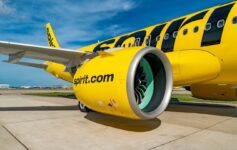


Booked a same day r/t fare LAX-DUS on AA yesterday (via LHR).
Base fare $28.50
Taxes $250
YQ: $200
Sale though, right?
#2 really caught my attention “so long as the airline or seller of air transportation: (1) demonstrates that the fare was a mistaken fare ; and (2) reimburses all consumers who purchased a mistaken fare ticket for any reasonable, actual, and verifiable out-of-pocket expenses that were made in reliance upon the ticket purchase, in addition to refunding the purchase price of the ticket.” Does this mean if I book a mistake fare and then immediately book a non-refundable hotel room, the airline is responsible for reimbursing me for the hotel?
Yes it does Jamal. Some have made non-refundable hotel arrangements after securing a known mistake because they know they have this protection. Others make them because on a case-by-case review it could compel the airline to look at the total costs out-of-pocket vs. giving out a cheap seat but not paying the hotel or travel expenses.
Personally, I don’t trust the agency who made their own rule the. Decided not to enforce it, to ensure I get reimbursed by an airline. Second, if the carrier wants to fight it, the language I have seen doesn’t really outline what happens next. If they can prove you are a bad actor and maliciously booked multiple tickets that shouldn’t be honored, how hard would it. E for them to then also prove manipulation of the rule by securing lots of non-refundable hotels?
In my opinion Jamal, it only creates more confusion not based on the language used but by the actions the agency has shown.